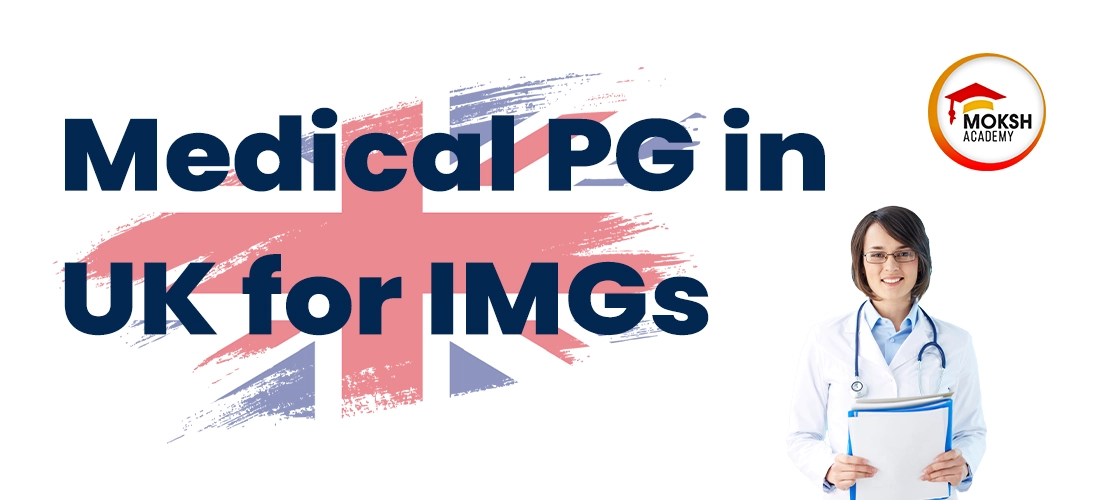
Introduction to Medical PG in the UK
As an international medical graduate (IMG), pursuing postgraduate medical education in the United Kingdom (UK) can be a promising career move. The UK offers a range of pathways for IMGs to further their medical education and training. In this guide, we will explore the different pathways available, the registration process with the General Medical Council (GMC), and provide valuable insights into successfully navigating the residency matching process. So let’s go through the Medicine PG in UK.
Understanding the GMC Registration Process
Before embarking on your medical postgraduate (PG) journey in UK, it is essential to understand and complete the GMC registration process. The GMC is the regulatory body responsible for maintaining the standards of medical practice in the UK. As an IMG, you will need to go through the GMC registration process to be eligible for medical practice and PG training in the UK.
The registration process involves several steps, including the submission of necessary documents, verification of qualifications, and passing the Professional and Linguistic Assessments Board (PLAB) test. The PLAB test assesses your medical knowledge and clinical skills. Successful completion of the PLAB test is a prerequisite for many PG pathways. It is important to note that the GMC registration process can be time-consuming, so it is advisable to start the process well in advance. It will ultimately be efficient to pursue a Medicine PG in UK.
PLAB vs. MRCP vs. MRCS: Which Pathway is Right for You to Do Medical PG in the UK?
Once you have completed the GMC registration process, you can explore the different PG pathways available for IMGs in the UK. The most common pathways include PLAB, Membership of the Royal College of Physicians (MRCP), and Membership of the Royal College of Surgeons (MRCS).
The PLAB pathway is suitable for those who wish to pursue a career in general practice or non-surgical specialties. It consists of two parts: a written exam and a practical assessment. On the other hand, MRCP and MRCS are specialty-specific pathways for physicians and surgeons, respectively. These pathways involve multiple exams and assessments to assess competency in the chosen specialty.
Choosing the right pathway depends on your career goals and interests. It is advisable to research and seek guidance from professionals in your desired specialty to make an informed decision. This is an important step towards Medicine PG in UK.
Pathway to Medical PG in UK for International Medical Graduates (IMGs)
Achieve the Required IELTS/OET Score
- You need an overall score of 7.5 (with at least 7.0 in each module) in IELTS or a Grade B in OET.
- Both IELTS and OET scores are valid for 2 years and must remain valid when applying for GMC registration.
Pass PLAB 1 and PLAB 2
- For fresh medical graduates aiming for a long-term career in the UK, taking the PLAB route is a recommended choice.
- Online application for PLAB is done through a GMC online account.
Complete EPIC Verification & GMC Registration:
- EPIC verification can be done at any time, ideally between PLAB 1 and PLAB 2.
- After passing PLAB 2, apply promptly for GMC registration to expedite job placement.
Secure a Non-Training NHS Job
Starting your career in the NHS can be challenging, but it's essential to adapt to the work culture and gain experience.
Pursue a Training Job
- Advancing your career as a doctor requires securing a training position.
- Success in interviews and passing various exams may be necessary at different training stages.
Specialist/GP Registration
- Becoming a specialist or general practitioner marks the culmination of your training.
- After completing your training, you can apply for specialist or GP registration.
In simpler terms, the pathway for IMGs to pursue Medicine PG in UK involves achieving language proficiency, passing PLAB exams, getting GMC registration, gaining work experience, pursuing specialized training, and ultimately becoming a specialist or general practitioner.
MD in UK Without PLAB: Is it Possible?
While PLAB is the most common pathway for IMGs, it is not the only option to pursue a medical doctorate (MD) in the UK. Some universities offer MD programs that do not require PLAB as a prerequisite. These programs typically require a research proposal and interview process for admission.
MRCP is an approved post-graduate qualification by the GMC, so you will just have to get the required scores in IELTS/OET to be fully registered with GMC and start working as a doctor in the UK. No PLAB is needed.
Applying for an MD in UK without PLAB can be a competitive process, and it is important to demonstrate a strong research background and a clear research plan. It is advisable to explore universities offering MD programs and contact their admissions offices for specific requirements and application procedures.
Navigating the Residency Matching Process for IMGs
As an IMG, navigating the residency matching process in the UK can be challenging. The residency matching process involves applying for training programs through the online application system, Oriel. It is important to carefully review the eligibility criteria and requirements for each program before submitting your application.
When applying for residency programs, it is crucial to highlight your qualifications, clinical experience, research background, and any additional skills or achievements. It is also advisable to seek guidance from mentors or professionals in your desired speciality to enhance your chances of securing a residency position.
Tips for a Successful Medical PG Application in the UK
Securing a medical PG position in the UK requires a well-prepared application. Here are some tips to enhance your chances of success:
- Research your desired speciality and pathway thoroughly.
- Gain relevant clinical experience and research background.
- Obtain strong letters of recommendation from mentors and supervisors.
- Prepare a well-written personal statement that reflects your passion and commitment.
- Practice for interviews and assessments specific to your chosen pathway.
By following these tips and investing time and effort into your application, you can increase your chances of securing a position for medical PG in UK.
Support Services for International Medical Graduates
As an IMG pursuing a medical PG in UK, you are not alone. Various support services are available to help you navigate the challenges and provide guidance throughout your journey. These services include:
- British International Doctors Association (BIDA): BIDA offers support, networking opportunities, and advice for IMGs in the UK.
- Medical Training Initiative (MTI): MTI provides opportunities for qualified doctors from outside the European Economic Area to train in the UK.
- International Medical Graduates Support Group: This online support group connects IMGs and offers a platform for sharing experiences, advice, and resources.
Utilizing these support services can provide valuable insights, support, and guidance throughout your journey of medical PG in UK.
Conclusion
Pursuing a medical PG in UK as an IMG opens up exciting career opportunities and personal growth. Understanding the GMC registration process, exploring the different pathways available, and preparing a well-structured application are essential steps toward a successful medical PG journey.
By taking advantage of the support services available and staying informed about the costs, salary expectations, and residency matching process, you can navigate the medical PG pathways in the UK with confidence. Remember to plan, seek guidance from MOKSH Academy, and stay focused on your career goals. Good luck on your journey of medical PG in the UK!



